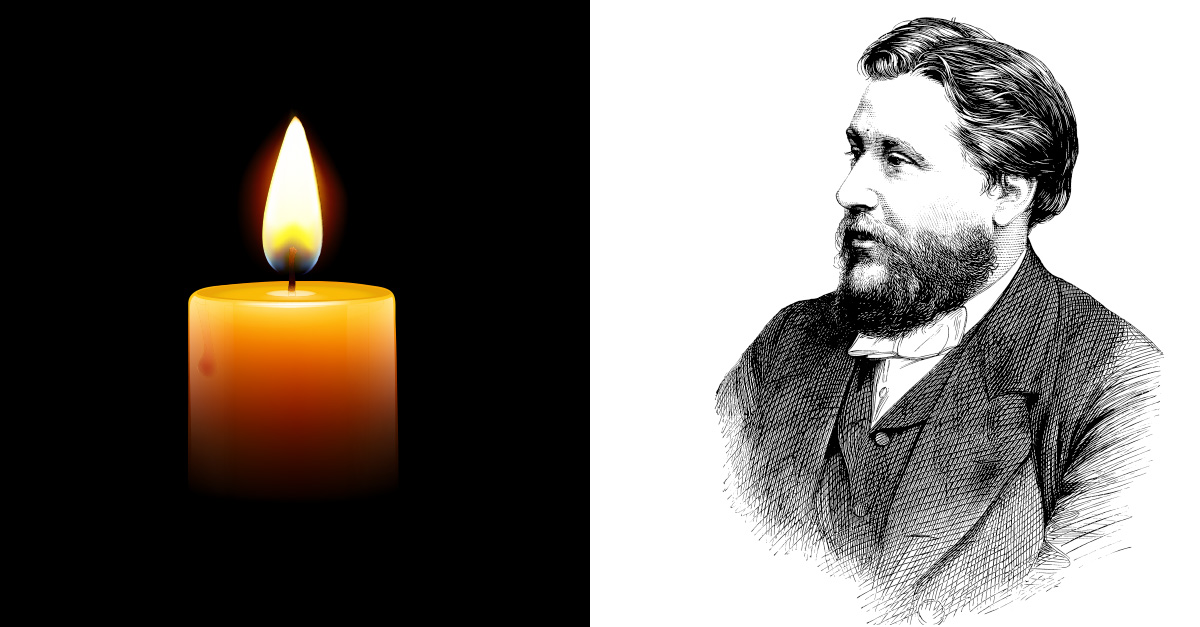


Get a free copy of Parental Rights & Education when you subscribe to our newsletter!

The Prince of Preachers once sermonized that religion “ought to be brought” into politics “and set there in the faces of all men as on a candlestick” — words that, if spoken today, would no doubt get him branded an extremist by secular media and the progressive Evangelical establishment.
If you grew up in a Christian household, you probably had a copy of Morning and Evening, Charles H. Spurgeon’s beloved twice-daily devotional book, lying around. You may have even read a few of the short but spiritually edifying entries contained within.
But Charles Haddon Spurgeon (1834-1892) was far more than just a devotionalist. Spurgeon was a prominent English Particular Baptist preacher — perhaps the best-known English preacher of the 19th century — and is often referred to as the “Prince of Preachers.” He remains highly influential among Christians to this day for his powerful preaching, prolific writing, and his commitment to evangelical doctrines. Spurgeon served as pastor of the Metropolitan Tabernacle in London for 38 years, during which time he preached to large congregations and became widely known for his passionate sermons and insightful teachings. Additionally, Spurgeon founded various charitable organizations, including an orphanage, and authored numerous books, sermons, and articles that continue to be widely read and appreciated by Christians around the world.
If you’ve never taken the time to read a Spurgeon sermon from start to finish, do so today. You can find a vast repository of his sermons here.
While Spurgeon is primarily known as a Gospel-centered and powerful preacher (who had a delightful way with words), he occasionally addressed other topics in his sermons, including politics. He thundered against the institution of slavery from the pulpit and was an outspoken abolitionist.
And he made the right political enemies, too. Once, when Frederick Engels asked Karl Marx, his longtime friend and co-author of The Communist Manifesto, to name “The characters you most dislike,” Marx gave just one name: Spurgeon.
Marx understood what so many people manage to miss today: The biggest threat to Communism (and its evil stepchild, wokeness) is Christianity. Or, at least, it should be.
But as America has grown either increasingly secular or increasingly pagan (depending on how you understand the animating forces of our times), Christians are told to keep their faith to themselves. “The Regime” (the mainstream media, corrupt government officials, and progressive evangelicals) is mainly content to let Christians practice their faith in the privacy of their own homes, or keep it sequestered in their sanctuaries, but as soon as we try to plant a flag in the public square for the Lordship of Christ, we are called “religious fanatics,” or worse. We’re told, in effect: “Just bake the cake, bigot.”
Navigating the rising anti-Christian sentiment in America can be difficult, but one simple hack is this: bravery. We need more Christians and Christian pastors to bravely, and unapologetically, call on our elected officials and politicians to rule justly according to Christian standards. We should not be shy about the fact — the truth — that Christian values, virtues, and moral standards are the best foundation for a free, prosperous, and well-ordered society.
Charles Spurgeon agreed with this — perhaps to the surprise of some of the most politically liberal Christians and Baptists of our day.
In a sermon titled “The Candle,” which Spurgeon preached on April 24, 1881, we get a glimpse of how he thought about the role of Christianity in politics. And it’s glorious.
The text for his sermon was Matthew 5:15-16:
“Neither do men light a candle and put it under a bushel, but on a candlestick; and it gives light unto all that are in the house. Let your light so shine before men, that they may see your good works, and glorify your Father which is in heaven.”
After preaching about the importance of Christians shining the light of the Gospel into the spiritual darkness of the world, Spurgeon pivots and extends this command to shine the light of Christ into the political arena as well:
“I long for the day when the precepts of the Christian religion shall be the rule among all classes of men, in all transactions!
I often hear it said, ‘Do not bring religion into politics.’ This is precisely where it ought to be brought, and set there in the face of all men as on a candlestick! I would have the Cabinet and the members of Parliament do the work of the nation as before the Lord, and I would have the nation, either in making war or peace, consider the matter by the light of righteousness.
We are to deal with other nations about this or that upon the principles of the New Testament. I thank God that I have lived to see the attempt made in one or two instances, and I pray that the principle may become dominant and permanent!
We have had enough of clever men without consciences—let us now see what honest, God-fearing men will do!”
What a much-needed word for our own political moment in America!
This is the spirit that we should pray will once again fills the pulpits across America. This is the courage that we should expect, and demand, from our pastors. They, like Spurgeon, shouldn’t hesitate for a second to proclaim that we must bring our religion into our politics.
Like Spurgeon, all Christians today should long for a day when “when the precepts of the Christian religion shall be the rule among all classes of men, in all transactions.”
Like Spurgeon, all Christians today should desire to see the President and the members of Congress in the United States “do the work of the nation as before the Lord.”
Like Spurgeon, all Christians today should cheer any attempts to protect, promote, and advance Christian beliefs as America’s irreplaceable foundation.
And what I’ve said for all Christians goes double for all pastors. Enough of the “clever men without a conscience” who stand behind pulpits or write editorials for the New York Times, trying to defend pluralism and some misguided myth of secular neutrality. Enough with the evangelical leaders who are even now telling Christians that it is okay to vote for a political party that supports abortion, transgenderism, and the indoctrination of our nation’s children into the destructive ideologies of critical theory and the sexual revolution.
We need honest, God-fearing men to bring the Christian religion back into politics in America if we hope to save a nation worth passing on to future generations.
To address the point I made in the subhead: No, I don’t think Charles Spurgeon was an “extremist.” But if any Christian dares to speak today the way that Spurgeon spoke back then, they will invariably be labeled “an extremist,” and more likely “a Christian nationalist,” both by the secular media and the progressive evangelical establishment.
To which I say — so what?
And if Spurgeon were alive today, I’m confident he would say the same thing.
If you like this article and other content that helps you apply a biblical worldview to today’s politics and culture, consider making a small donation here.
Christian conservative news and issues that matter. Curated just for you!
